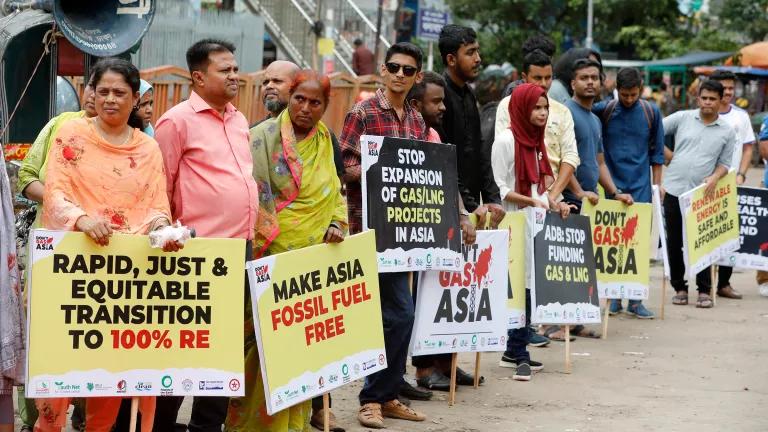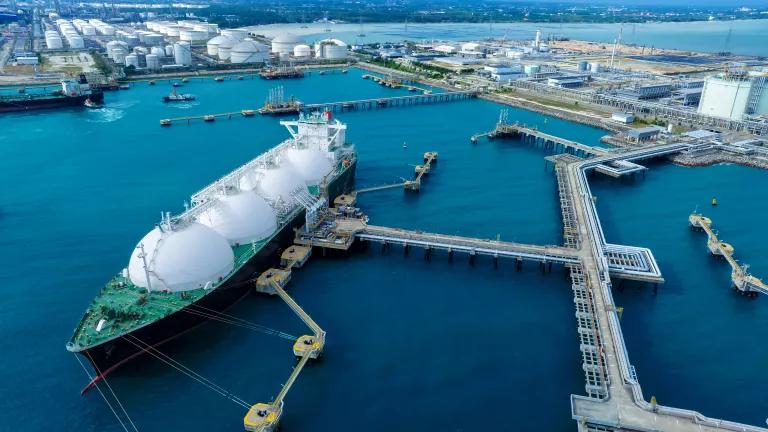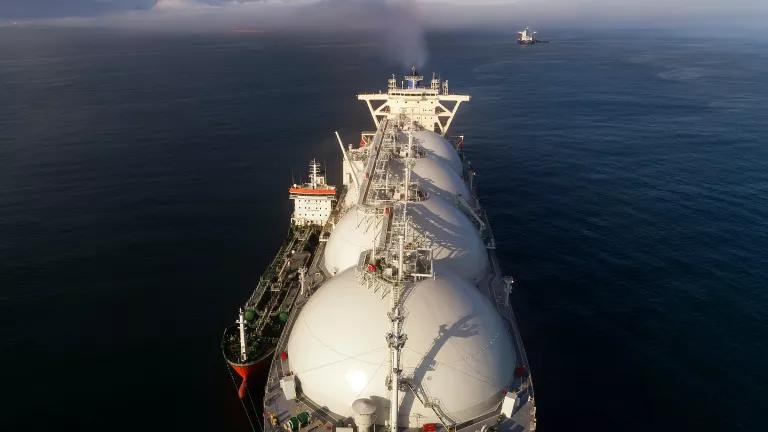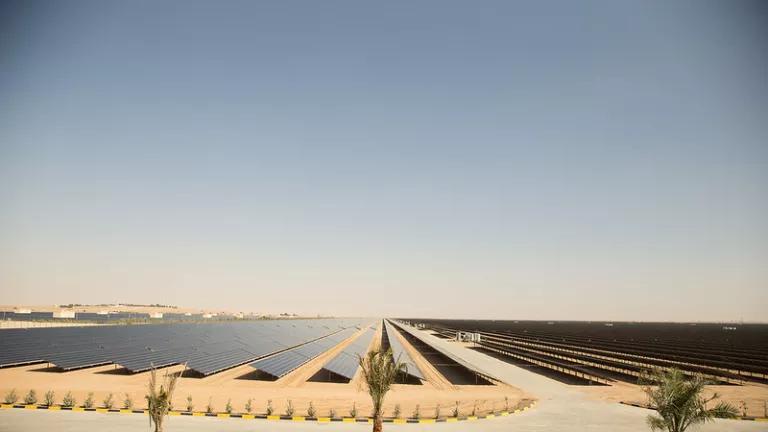Stories from the Frontlines of Global LNG Build-Out at COP28
NRDC invited key local partners from developing regions and grassroots leaders together to underscore the significant climate, health, and equity impacts of LNG infrastructure expansion.

A rally for sustainable energy policy in Dhaka, Bangladesh, on May 4, 2023
Hasan Ali/Shutterstock
An NRDC event at COP28 in Dubai, United Arab Emirates, on December 8, 2023, gave voice to how liquefied natural gas (LNG) production harms communities and public health.
NRDC hosted the event with key local partners from developing regions and grassroots leaders to underscore the significant climate, health, and equity impacts of LNG infrastructure expansion. Roishetta Ozane—a prolific U.S. environmental justice advocate, founder, and Gulf fossil finance coordinator with the Texas Campaign for the Environment Fund, moderated.

Speakers from left to right: Lorraine Chiponda, Father Edwin Gariguez, Dr. Laura Kehoe, Maria Netto, and Roishetta Ozane
Kevin Handy
Panel speakers included:
- Lorraine Chiponda, facilitator of the Don't Gas Africa campaign and co-facilitator for the Africa Movement Building Space
- Father Edwin Gariguez, a 2012 Goldman Prize winner and convenor for Protect VIP
- Dr. Laura Kehoe, postdoctoral researcher in ecology at the University of Oxford and the Nature Conservancy
- Maria Netto, executive director of the Instituto Clima e Sociedade
Each of these panelists shared powerful stories from frontline communities who unwillingly sacrifice their homes, health, and livelihoods, yet reap no rewards from exorbitant LNG industry profits. The panelists called upon leaders and investors from the Global North, especially from the United States and Europe, to halt the political and financial support for LNG. United, they join the call for an accelerated phasedown of the LNG industry in line with the global push to phase out fossil fuels.
LNG expansion compromises communities
Louisiana and Texas are the lynchpins of U.S. LNG production, making the United States the world’s largest exporter of LNG in the first half of 2023. The unfettered growth of LNG comes at the cost of historically marginalized communities. Ozane shared, “The impacts are truly felt across the world, and in our own individual communities. Wherever we are, we have similar issues. The fishermen are fighting to make a living, the children are fighting so that they can have clean air and clean water for the future. It is all connected, from the United States to Europe and even to Africa.”
Similarly, Africa is scaling up fossil gas production and LNG exports, especially amid Europe’s dash for gas after the Russian invasion of Ukraine. Chiponda refutes the claims that the gas industry is for supporting development in Africa: “Despite having the fossil industry for more than a hundred years, we still have people in Africa living in energy poverty. Communities were excluded from their land, and most of the gas projects are happening in coastal communities, attacking our oceans and water systems….The dash for gas is still meant for exports, and not for local African people.”
Political leaders and investors must halt LNG build-out
Father Gariguez holds the Philippines’ political leaders accountable for the unnecessary expansion of fossil gas and LNG. He advocates most strongly for communities in Oriental Mindoro, Philippines. This province is home to the Verde Island Passage, which is often referenced as the center of the center of marine shore fish biodiversity. “We try to organize communities who have been affected—the youth, fisherfolk, church people, and even the tourism industry,” Gariguez said “This is a long process of trying to organize people and making them aware. And also further dealing with government….We fight cases for environmental rights.”
Kehoe—an environmental scientist working closely with Futureproof Clare, Love Leitrim, and Safety Before LNG—shared the campaign successes against fracked gas and Shannon LNG in Ireland. Love Leitrim advocates were inspired by campaigners working hard to raise awareness about health and environmental issues in the United States. “They learned about the atrocious ecological impacts, how children living near fracked gas wells were two to three times more likely to have leukemia,” Kehoe said. “Spurred on by that knowledge, they managed to ban fracking in their hometown and get a national ban on fracking, making Ireland one of the first countries in the world to do that.”
Building a better world without LNG and fossil fuels
Netto spoke about Brazil’s huge comparative advantage in renewable energy, and its potential to be a renewable energy superpower. “New oil and gas potential is located in many places where we have not only communities but biodiversity and nature reservation,” she said, “and there is public discussion about allowing exploration.” Warning against viewing LNG and gas expansion as a quick fix, she urges governments to rethink gas expansion as a source of revenue because it makes both local and Indigenous communities more vulnerable.
View the full recording of the panel here.
PARTNER RESOURCES
- Power Shift Africa: Just Transition: A Climate, Energy and Development Vision for Africa
- Solutions for Our Climate: LNG Carrier: The Floating Pipeline Powering Global Gas Expansion—Unveiling its Hidden Enablers
Related Resources

Risky Realities—Recognizing the Harms of Global LNG Expansion

A Wake-Up Call to Political and Financial Enablers of Global LNG Expansion


